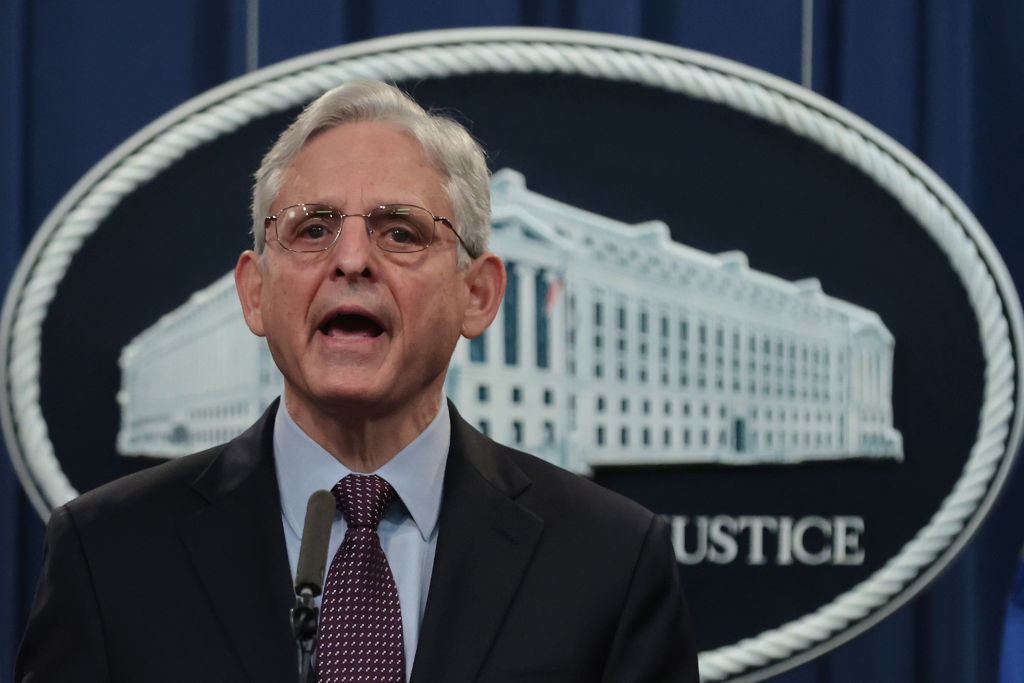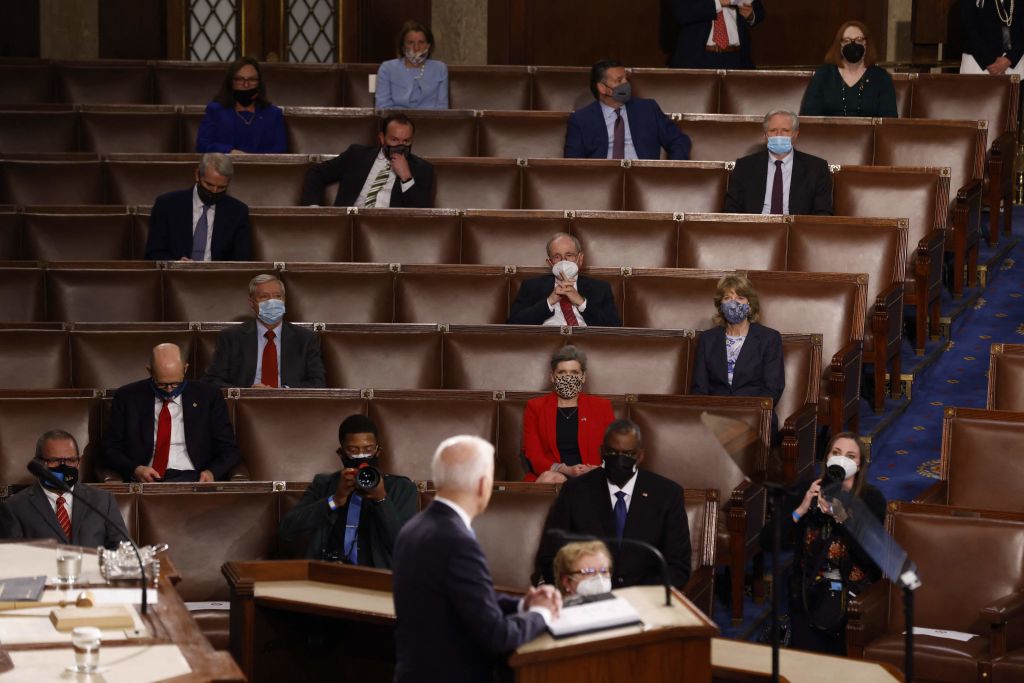Conservatives can’t rely on judges to wage their battles for them.
Close Call

Merrick Garland has shown us why he never belonged on the Supreme Court.
Justice Antonin Scalia’s sharp pen and forceful personality are still shaping the Supreme Court more than five years after his passing in 2016. Then and now, when Republican presidential candidates are asked who they would appoint to the Court, “someone like Justice Scalia” is always the right answer.
At the time of Scalia’s death in February 2016, President Obama still had nearly a year left in his term. And he opted to nominate then-Judge Merrick Garland—a purported moderate—as a replacement. Replacing Scalia with Garland would have dramatically shifted the ideological direction of the Supreme Court: from having the majority appointed by Republicans, to the majority appointed by Democrats.
For conservatives, everything was at stake. The individual right to possess a firearm was only recognized— by a 5-4 vote—in 2008, with Scalia writing the now-famous Heller opinion. A company’s right not to be compelled to provide abortifacients as part of its healthcare plan, too, was a tight 5-4 decision in 2014. Even the oft-criticized Citizens United decision, a 5-4 ruling in 2010, preserved the First Amendment rights of corporate entities like newspapers and book publishers. All of these decisions were likely to be swiftly revisited had Garland been confirmed.
Senate Majority Leader Mitch McConnell knew the stakes. He famously blocked Garland, or any nominee, from filling the Scalia seat in the waning months of Obama’s presidency. Garland never received a hearing, much less a confirmation vote. And while it’s highly unlikely that Garland would have been confirmed anyway—he would have needed 14 Republican votes willing to break a filibuster—Democrats cried foul.
Fast forward to 2021. President Biden nominated Judge Garland for the role of Attorney General. He cruised to confirmation on a 70-30 vote, with 20 Republicans voting in favor. Some of those Republicans might have been motivated by conciliatory interests, and perhaps even felt a little apologetic about Garland’s treatment in 2016. Just recently, some conservative members of President Biden’s Supreme Court Commission signed onto a draft report that contrasted Garland’s treatment by Republicans in 2016, with the speedy confirmation of Amy Coney Barrett in 2020 after the death of Justice Ruth Bader Ginsburg.
But the time has come to stop apologizing. Garland’s tenure as Attorney General has revealed just how disastrous it would have been to put him on the Supreme Court.
For instance, on the issue of the right to keep and bear arms, Garland has gone out of his way to undermine foundational principles of the Constitution. Garland has led the Biden Administration’s battle against rights protected by the Second Amendment, by expanding the types of firearms that the Bureau of Alcohol, Tobacco, Firearms, and Explosives seeks to regulate, and disregarding years of precedent in interpreting federal gun laws. Garland’s DOJ has even established a new webpage devoted exclusively to their agenda to purportedly “reduce gun violence,” as though firearms, and not individuals, are responsible for violence. Under Garland’s leadership, there is seemingly nothing outside of the DOJ or ATF’s regulatory grasp.
And on the issue of the First Amendment, Garland’s conduct has been downright shameful. In October, Garland’s Department of Justice issued a memorandum that was unmistakably designed to intimidate parents who vocally oppose race discrimination in schools. Without citing any federal laws, the memorandum directed every U.S. Attorney in the country to hold meetings with the FBI and local leaders in order to “discourage” and “prosecute” conduct considered threatening to school board members.
Garland has acknowledged that the memorandum was issued in response to the National School Boards Association, which had said that the conduct by parents opposed to race discrimination “could be the equivalent to a form of domestic terrorism and hate crimes.”. The NSBA has acknowledged that it coordinated with the Biden White House before sending the letter. It has also since apologized and withdrawn that letter. But Garland has refused to withdraw his memorandum—or put a halt to the federal law enforcement meetings that are ongoing throughout the country.
At a recent Senate Judiciary hearing, Garland repeatedly dodged questions about his memorandum, the motivations for drafting it, and whether he sought an ethics opinion before issuing it. Senator Tom Cotton of Arkansas spoke the phrase ringing quietly in the heads of many colleagues: “Thank God you are not on the Supreme Court.”
Cotton is right. Merrick Garland’s time as Attorney General has shown that a Justice Garland would have been a disaster for the Constitution and the country. Neither the First nor the Second Amendment would have been safe with him on the highest court in the land.
So, no more apologies. The next time that conservatives hear the complaint that Garland was ruthlessly blocked from getting onto the Supreme Court, the correct response is, yes, thank God.
The American Mind presents a range of perspectives. Views are writers’ own and do not necessarily represent those of The Claremont Institute.
The American Mind is a publication of the Claremont Institute, a non-profit 501(c)(3) organization, dedicated to restoring the principles of the American Founding to their rightful, preeminent authority in our national life. Interested in supporting our work? Gifts to the Claremont Institute are tax-deductible.
The administration prepares to disarm the population.
Two regimes cannot coexist in the same nation.



